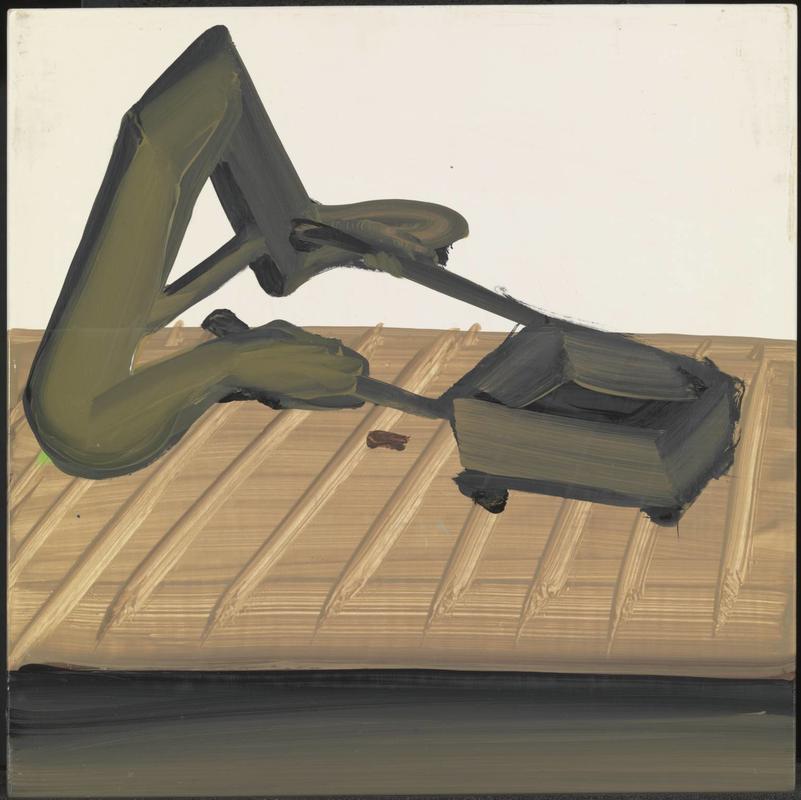More about A with Wagon

Contributor
Tala Madani’s A With Wagon isn’t what first meets the eye.
Instead, like most of Madani's art, it carries more than one meaning. The piece was initially exhibited at Lombard Freid Projects in New York back in 2010 before heading to its current home across the pond at the Tate Museum. During that first exhibition, Madani talked about her desire to explore the signs of the alphabet as “raw image, as opposed to language.” Her paintings in the show explored the idea of figures “wanting to become alphabetic characters, and yet always somehow missing the mark”-- you know, just your classic, run-of-the-mill, alphabetical metamorphosis.
For A with Wagon, Madani sought to explore the “heavy irony” of the character trying to force functionality on an empty wagon, calling the juxtaposition “funny.” And while I don’t know that I’d ever laugh out loud at Madani’s alphabet paintings, they are certainly some of her more lighthearted work. Most of the time she’s painting dudes in compromising positions and, more often than not, with some sort of bodily fluid. It’s often been considered very "capital F Feminist" of her, but she’s kind of nipped that notion in the bud, declaring that her work is less about lines of gender and more about lines of propriety— not just about the things that your weird uncle does in private, but about the weird things you do in private, and why you feel the need to hide them.
Madani’s work plays with the difference between our natural, animalistic tendencies and the formality of everyday life— the ways in which we have to conceal our true desires in order to function in the world and not pull a Justin Bieber and go around urinating in public or getting up to other mischief. And while the letters of the alphabet may not struggle with peer pressure or gender roles the way the rest of us do, Madini still manages to tie in those same themes.
All this to say that, whether she’s painting letters or humans, Madini likes to poke fun at both the earnestness and futility of our attempts to achieve societal acceptance— a subject which, if you’ve ever in your life posted on Instagram, you can almost certainly relate to.
Sources
- Azimi, N. (2017, April 28). The Charming, Disgusting Paintings of Tala Madani. The New Yorker. https://www.newyorker.com/culture/culture-desk/the-charming-disgusting-….
- Corrias, P. (n.d.). Tala Madani. Pilar Corrias. https://www.pilarcorrias.com/artists/47-tala-madani/cv/.
- McGarry, K. (2010, June 2). Greater New Yorkers | Tala Madani. The New York Times. https://tmagazine.blogs.nytimes.com/2010/06/02/greater-new-yorkers-tala….
- NYAB Event: Tala Madani 'Pictograms'. NYAB event - Tala Madani "Pictograms". (n.d.). https://www.nyartbeat.com/event/2010/C72C.











